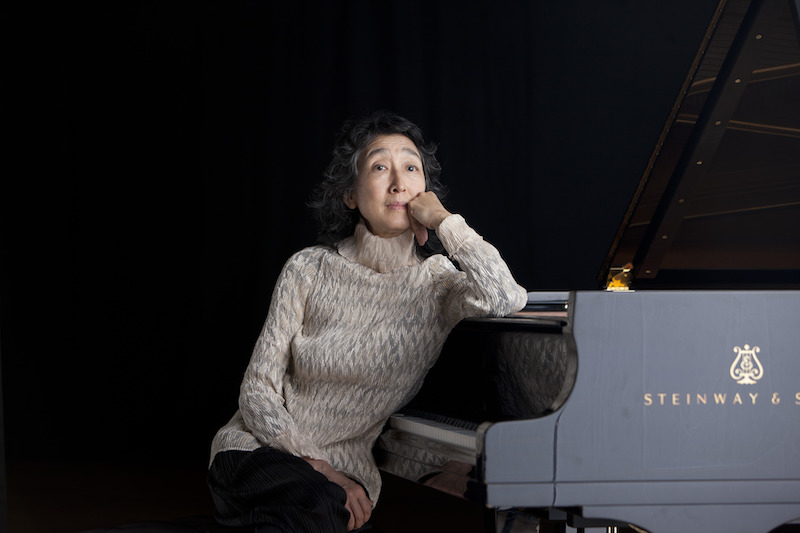Mitsuko Uchida, Royal Festival Hall
‘Schubert’s music is between life and death; he dreams, with his eyes on the far horizon.’ With these words emblazoned over her programme, this is how Mitsuko Uchida wishes us to listen to her Schubert sonatas, and this is how they now come over. She’s seventy, and has played them in public for fifty years; listen to her recordings from even twenty years ago, and you’ll see how her interpretations have changed. Then she was emotionally up-front, with the music in bold close-up: now her playing has an inward quality, as though heard in a dream.
 Mitsuko Uchida ©Decca and Justin Pumfrey
Mitsuko Uchida ©Decca and Justin Pumfrey
She made her usual entrance on Saturday, giving an athletic bow so low that her hair almost touched the floor, then settling on her stool in her trademark silks like a diaphanous butterfly, and dived straight into the furious passage in octaves which opens the middle-period A minor sonata. That fury was quickly tempered with lyricism, the two modes contending for dominance until the movement’s truce-like conclusion; the Allegretto, with its sly key-changes, became an absorbing journey, and the finale flashed fire.
Next she played the unfinished and rarely-performed ‘Relique’ sonata, turning its seeming diffidence into something richly suggestive. The repeated, starkly-dissonant chords which punctuated the Moderato – coupled with major-minor key-shifts – intensified the questioning mood; at times the left-hand figurations were barely a murmur. The Lied-like Andante emerged from the shadows to take the argument on – further musical questions delivered like breaths of wind – before receding into the shadows once more.
After the interval came the B flat major sonata, Schubert’s great valediction. The opening theme sounded as though from far away, as did the growled bass trill, and the first movement’s labyrinthine course was plotted as an exercise in implied distances, now in close-up, now on the edge of audibility. I’ve seldom heard the slow movement sound so pure, or so beautiful; in this reading, the comedy of the syncopated Scherzo and the hard-won triumph of the Rondo felt like a progressive dream-resolution to life’s problems. If only. Schubert’s terminal illness didn’t allow him to hear it.
★★★★★